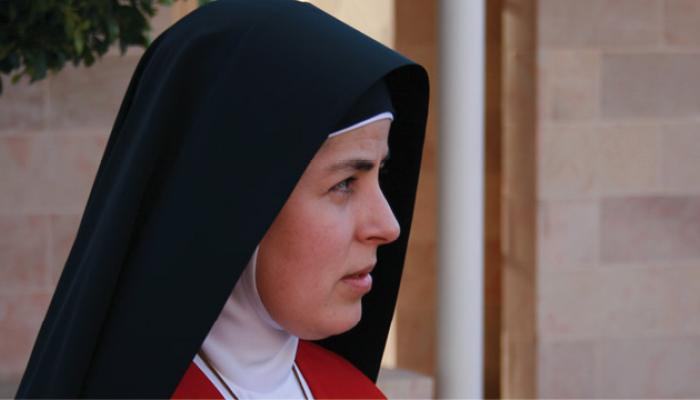
2.2 Paano pinamumunuan ang Simbahan?
Ang Simbahan ay pinamumunuan ng Papa (na siya ring obispo ng Roma) kasama ng iba pang mga obispo. Ang Papa ay ang kahalili ni Apostol San Pablo, na siyang pinili ni Hesus na mamuno sa Simbahan.
Ang ibang mga obispo ay ang mga kahalili ng ibang Apostoles. Pinamumunuan ng isang obispo ang isang diyosesis. Ang bawat diyosesis ay nahahati sa mga parokya, na pinamumunuan ng kura paroko o mga pastor.
Bakit itinaguyod ni Kristo ang isang hierarchy ng ecclesiastical?
Itinatag ni Kristo ang isang hierarchy ng simbahan sa misyon na pakainin ang mga tao ng Diyos sa kanyang pangalan at para sa hangaring ito ay nagbigay ng awtoridad. Ang hierarchy ay nabuo ng mga sagradong ministro ,; mga obispo, pari, at mga deakono. Salamat sa Sakramento ng Mga Order, ang mga Obispo at Pari ay kumikilos sa pagsasagawa ng kanilang ministeryo sa pangalan at tao ni Cristo na Ulo. Ministro ng DEACONS sa mga tao ng Diyos sa Diakonia (serbisyo) ng salita, liturhiya, at kawanggawa. [CCCC 179]
Paano isinasagawa ang dimensyong pangkolehiyo ng ministeryo ng simbahan?
Matapos ang halimbawa ng labindalawang apostol na napili at ipinadala ni Cristo, ang pagkakaisa ng hierarchy ng simbahan ay nasa paglilingkod sa pakikipag -isa ng lahat ng tapat. Ang bawat obispo ay nagsasagawa ng kanyang ministeryo bilang isang miyembro ng Episcopal College na nakikipag -ugnayan sa Papa at nagbabahagi sa kanya sa pangangalaga ng Universal Church. Ginagamit ng mga pari ang kanilang ministeryo sa Presbyterate ng lokal na simbahan sa pakikipag -ugnay sa kanilang sariling obispo at sa ilalim ng kanyang direksyon. [CCCC 180]
Bakit mayroon ding personal na karakter ang ministeryo ng ecclesial ministeryo?
Ang Ecclesial Ministry ay mayroon ding personal na pagkatao sa bawat ministro, sa kabutihan ng Sakramento ng Banal na Mga Utos, ay may pananagutan sa harap ni Kristo na tumawag sa kanya nang personal at ipinagkaloob sa kanya ang Kanyang misyon. [CCCC 181]
Bakit hindi isang demokratikong organisasyon ang Simbahan?
Ito ang prinsipyo ng demokrasya: Ang lahat ng kapangyarihan ay nagmumula sa mga tao. Ngunit sa → Simbahan ang lahat ng kapangyarihan ay mula kay Kristo. Kaya mayroong herarkiyang istruktura ang Simbahan. Kasabay nito, binibigyan din siya ni Kristo ng isang istrukturang pang-magkakapatid (collegial structure).
Ang herarkiyang elemento sa → Simbahan ay binubuo nito: na si Kristo mismo ang siyang kumikilos sa kanya kapag ang mga inordenahang ministro ay may ginawa at ibinigay sa pamamagitan ng biyaya ng Diyos, ng anumang hindi nila kayang gawin at ibigay, ibig sabihin, kapag sila ay nagbibigay ng mga → Sakramento bilang kahalili ni Kristo at nagtuturo sa kanyang kapangyarihan. Ang istrukturang pangmagkakapatid sa Simbahan ay binubuo nito: na ipinagkatiwala ni Kristo ang kabuuan ng pananampalataya sa isang komunidad ng labindalawang → Apostol, na ang kanilang mga kahalili ang gumagabay sa Simbahan sa pamumuo ng Santo Papa. Mahalagang nabibilang rito sa kolehiyo ang Konsilyo sa Simbahan. Ngunit sa iba ring mga komite ng Simbahan, sa mga sinodo at konseho, maaaring magbigay bunga ang pagkakaiba-iba ng mga espirituwal na kaloob at pagiging pandaigdigan ng pangkalahatang Simbahan. [Youcat 140]
Ano ang kakayahan ng College of Bishops?
Ang College of Bishops na umaasa sa Papa, at hindi kailanman wala siya, ay nagsasagawa rin ng kataas -taasan at buong awtoridad sa simbahan. [CCCC 183]
Paano isinasagawa ng mga obispo ang kanilang misyon ng pagtuturo?
Yamang sila ay mga tunay na saksi ng pananampalataya ng apostol at namuhunan sa awtoridad ni Cristo, ang mga obispo na may kaugnayan sa Papa ay may tungkulin na ipahayag ang Ebanghelyo nang matapat at may akda sa lahat. Sa pamamagitan ng isang supernatural na pakiramdam ng pananampalataya, ang mga tao ng Diyos ay walang pagsunod sa pananampalataya sa ilalim ng gabay ng buhay na Magisterium ng Simbahan. [CCCC 184]
Kailan nag -ehersisyo ang hindi pagkakamali ng Magisterium?
Ang hindi pagkakamali ay isinasagawa kapag ang Roman pontiff, sa kabutihan ng kanyang tanggapan bilang kataas -taasang pastor ng simbahan, o ang College of Bishops, alinsunod sa Papa lalo na kung sumali sa isang Ecumenical Council, na inihayag ng isang tiyak na kilos na isang doktrina na nauukol sa pananampalataya o moral. Ang hindi pagkakamali ay isinasagawa din kapag ang mga papa at obispo sa kanilang ordinaryong magisterium ay nagkakasundo sa pagmumungkahi ng isang doktrina bilang tiyak. Ang bawat isa sa mga tapat ay dapat sumunod sa gayong pagtuturo na may pagsunod sa pananampalataya. [CCCC 185]
Paano ginagamit ng mga obispo ang kanilang ministeryo ng pagpapakabanal?
Ipinagbabawal ng mga obispo ang Simbahan sa pamamagitan ng pag -alis ng biyaya ni Cristo sa pamamagitan ng kanilang ministeryo ng Salita at mga Sakramento, lalo na ang Banal na Eukaristiya, at sa pamamagitan din ng kanilang mga panalangin, kanilang halimbawa at kanilang gawain. [CCCC 186]
Paano ginagamit ng mga obispo ang kanilang pag -andar ng pamamahala?
Ang bawat Obispo, na hindi gaanong miyembro ng College of Bishops, ay nagdadala sa pag -aalaga sa lahat ng mga partikular na simbahan at para sa buong simbahan kasama ang lahat ng iba pang mga obispo na nagkakaisa sa papa. Isang obispo na pinagtibay ng isang partikular na simbahan na pinamamahalaan ng Simbahan na may awtoridad ng kanyang sariling sagradong kapangyarihan na karaniwan at agarang at isinasagawa sa pangalan ni Cristo, ang Mabuting Pastol, sa pakikipag -ugnay sa buong Simbahan at sa ilalim ng gabay ng kahalili ni Peter. [CCCC 187]
Maaari bang kumilos at magturo ang mga obispo laban sa Santo Papa, at maaari bang kumilos at magturo ang Santo Papa laban sa mga obispo?
Hindi maaaring kumilos at magturo ang mga → Obispo laban sa Santo Papa, kundi dapat kasama niya lamang. Ngunit sa malinaw na ilang mga kaso, ang Santo Papa ay maaaring magdesisyon kahit walang pagsang-ayon ng mga obispo.
Totoo na ang → Santo Papa ay nakatali sa pananampalataya ng → Simbahan sa kanyang mga desisyon. Mayroong ganoong bagay tulad ng pangkalahatang kamalayan ng pananampalataya ng Simbahan na pinagagana sa pamamagitan ng Espiritu Santo, alinsunod sa pangunahing pananalig sa mga bagay ng pananampalataya na umiiral sa buong Simbahan, sa madaling salita, ang karaniwang kahulugan ng Simbahan, ibig sabihin, "anuman ang palaging pinaniniwalaan ng lahat, sa lahat ng dako" (Vinzenz von Lérins)." [Youcat 142]
Sundin ang lahat sa obispo tulad ng ginawa ni Jesucristo sa Ama, at mga pari, tulad ng gagawin mo sa mga Apostol. Igalang ang mga diakono tulad ng gagawin mo sa utos ng Diyos [St. Ignatius of Antioch, Letter to the Smyrnaens, Chap 8 (MG 5, 713)]





